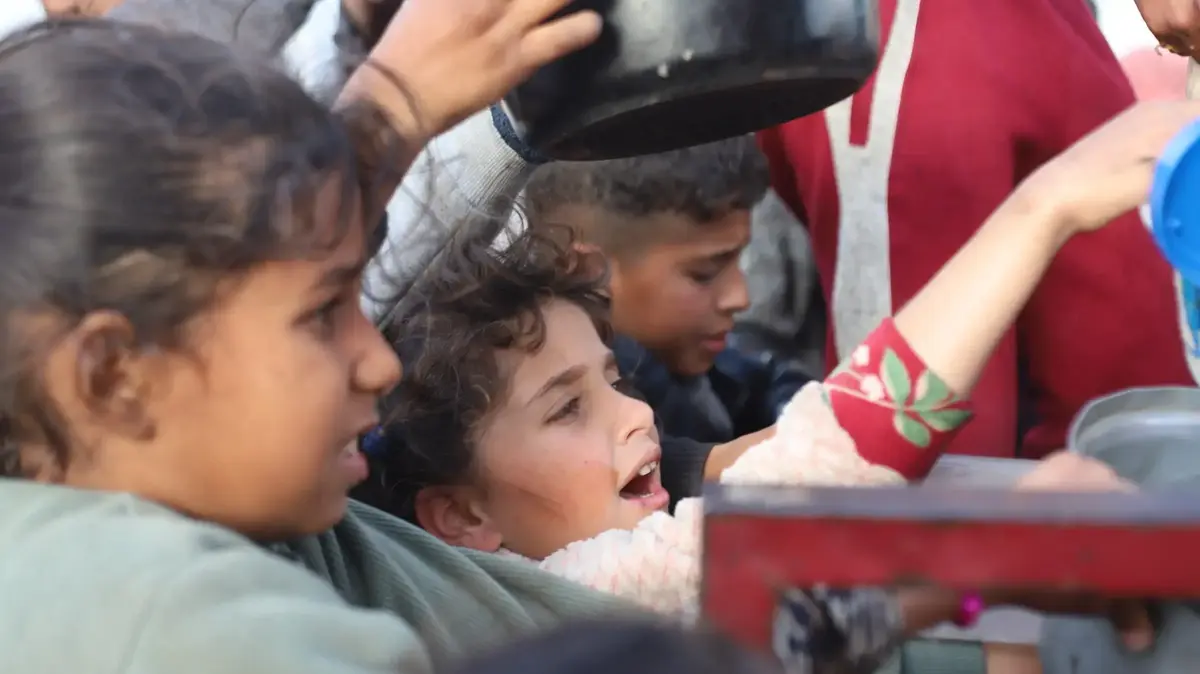In recent weeks, we have been shaken by the alarming numbers of hunger in the world.
Many have made headlines warning that hunger already affects 828 million people, an increase of 150 million since the start of the covid-19 pandemic.
Even more worrying is Latin America and the Caribbean, the region that has suffered the greatest increase in food insecurity, and in which 60 million people do not have enough food to eat.
Hunger is a gender issue.
Globally, about 32% of women are moderately or severely food insecure, compared to 27.6% of men.
Again, the highest figures are recorded in Latin America, where the gender gap in terms of food security exceeds 11%.
The outlook is bleak, as 670 million people are expected to remain undernourished by the end of this decade, moving us further from the goal of zero hunger set by the 2030 Agenda for Sustainable Development.
The paradox of this hungry world is that agri-food systems are capable of producing enough food for all of humanity.
The immediate question is: how is it possible for this to happen, what are we doing wrong?
The answer is to ask ourselves if in our analyzes we address the real causes of hunger.
The ongoing war in Ukraine and the covid-19 pandemic, along with climate change, highlight the complexity of the hunger problem.
They show that crises hit people in vulnerable situations particularly hard, being the breeding ground for the increase in inequalities and poverty.
On the one hand, the war in Ukraine not only slows economic growth and triggers inflation, it can also cause lasting damage to food supply chains.
Inflation reduces the savings capacity of the poorest households, who tend to spend most of their income on food and have less resilient livelihoods.
Women are particularly susceptible to price increases, since they allocate more money to family consumption, especially when they are heads of households.
Higher prices hinder access to agricultural inputs for small farmers, and a healthy and nutritious diet for the poorest consumers, especially in low-income countries.
A prolonged reduction in exports by Ukraine and the Russian Federation would add pressure on international prices, to the detriment of the poorest net food-importing countries and the most vulnerable sectors of society.
On the other hand, the pandemic has aggravated the situation of the most disadvantaged groups, and has exacerbated the existing inequalities within the countries.
As a result, for the first time in 20 years, extreme poverty and income inequality have increased globally.
Likewise, it has exposed gender inequalities, since women have dedicated more hours to care tasks and violence against them has escalated.
The worsening of their nutritional situation would lead to more low birth weight newborns and malnourished children.
If inequality and poverty are causes of hunger, they must also be the solution.
Now, this rule of three is not always obvious to everyone.
Inequalities are often overlooked in public discourse as they are less striking and visible, but above all more complex to deal with.
Hunger is the tip of the iceberg under which lies a network of factors, including inequality and poverty.
To prevent the worsening of the food crisis, it is urgent that States consider inequalities in their public policies, prioritizing the most vulnerable, marginalized and excluded.
It is necessary to strengthen public health services, social protection, education, food, water and sanitation, and housing, in favor of the most vulnerable and under a gender approach.
Investing in such essential services will be beneficial in the short term, as it will mitigate the impact of crises, and in the long term, as it will promote human development, economic productivity and resilience, as well as making it easier for institutions to resist future crises. .
The human rights-based approach provides guidance in the design and implementation of these public policies and services.
Approaching poverty and hunger from a human rights perspective has the potential to launch interventions that address the root of the challenges that keep the most vulnerable in a spiral of poverty and hunger.
It allows temporary and ad hoc
measures to be set aside
, as well as a commitment to long-term inclusive public policies and public services endowed with sufficient resources.
Governments that restrict exports must protect the right to food of their population
This approach requires international cooperation.
Governments that restrict exports must protect their population's right to food, while minimizing the impact on food supplies and prices in third countries.
It demands responsibilities from government entities and international institutions so that they respect, protect and fulfill human rights.
Likewise, it helps governments not only create public services, but also ensure that people know their rights and benefit from this type of program.
Errors in policy making prevent us from living empowered, with dignity and discretion.
For this reason, it is more important than ever to put on the table for debate the key role played by policies and public services in favor of economic, social and cultural rights in the fight against hunger.
The objective is not only the recovery towards a better world, but a fairer one.
At the same time that the world seeks to overcome the crises triggered by the covid-19 pandemic, conflicts and climate change, we must promote, through human rights, political reforms for the sustainable transformation of agri-food systems.
This is and will be a
sine qua non
condition in order to guarantee that all people, in all places, and at all times, have access to adequate food.
Benjamin Davis
is Director of the Division for Inclusive Rural Transformation and Gender Equality at the Food and Agriculture Organization of the United Nations (FAO).
Serena Pepino
is a policy expert with the Right to Food Team at FAO.
You can follow PLANETA FUTURO on
,
and
, and subscribe
to our 'newsletter'
here
.















